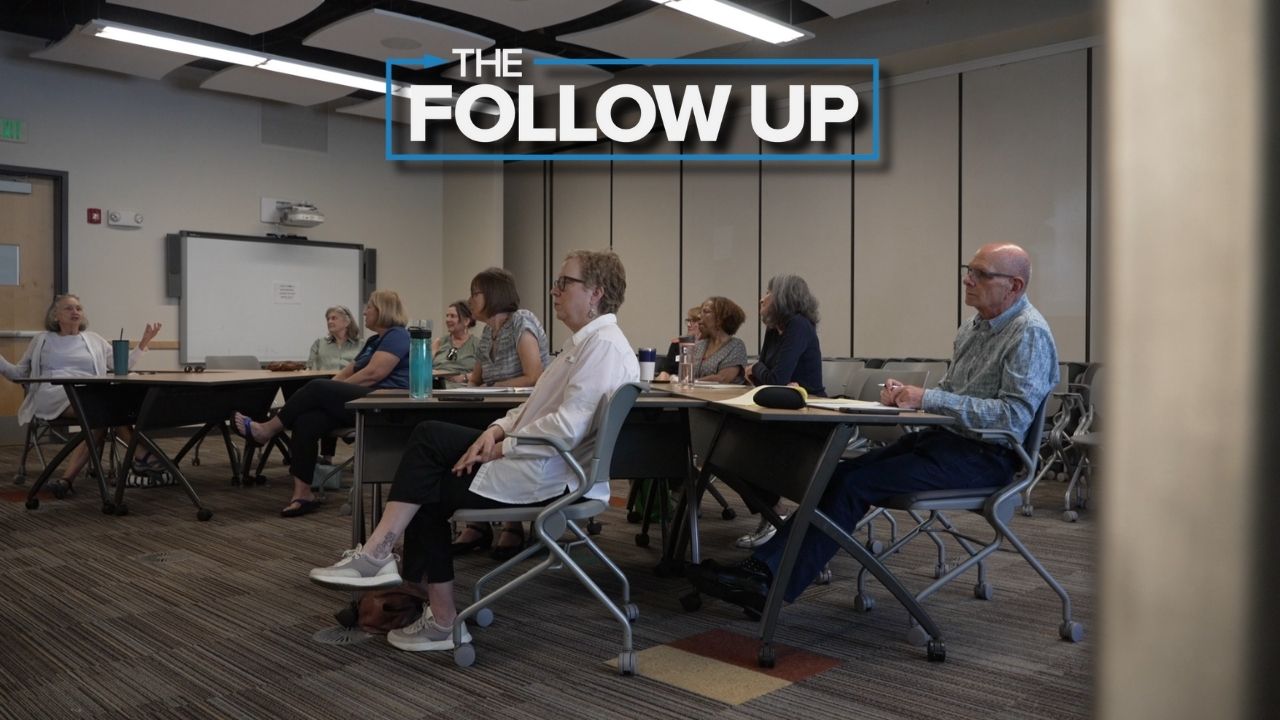DENVER — As Colorado's population ages, the state's Multi-Sector Plan on Aging will use feedback from a series of statewide listening sessions to guide future policy for older adults seeking greater support and opportunities in the workforce.
Years of experience and a drive to keep solving problems weren’t enough to insulate Jay Caviness from Colorado’s shifting job market.
“I was laid off back at the end of August,” said Caviness, a 58-year-old tech worker.
The setback came just four weeks after an ankle replacement, changing his retirement outlook.
“I think I would have probably retired at 62… but now, I’ll probably retire between 67 and 70, do a little side business," he told the Scripps News Group.

Caviness’s story is increasingly common as Colorado’s population ages. With birth rates declining and fewer people leaving the state, officials say supporting older adults in the workforce is critical to the state’s economic future.
The Colorado Multi-Sector Plan on Aging, a 10-year initiative, aims to address these challenges, combining feedback from older adults, advocates, and employers to shape future workforce policies.
On Tuesday, we attended a statewide listening session where older Coloradans voiced their frustrations with job hunting later in life.
“One of the issues that I’m running into is putting everything out there and not hearing anything back, or getting pre-screening interviews and getting completely ghosted,” Caviness said. “It's like, is anyone even listening? It's frustrating. It's very, very frustrating.”
The session, led in part by organizations such as iAging, is designed to gather the real-life experiences of older workers.
“The whole purpose of these sessions is really to hear directly from the people who have the life experience of applying for a job, trying to stay in a job, re-entering the workforce, to understand what are the challenges you face today, and how can we as the state… evolve to better serve you," said Karen Brown, CEO of iAging.

Brown said older adults are working longer for both financial security and personal fulfillment.
“Working a little bit longer is going to be critical for me to be able to have financial security, purpose in life. These are important elements of being involved in the workplace,” she said. “We are living decades longer… the times, they are changing, and with that, we need to adapt how we engage and connect with older adults and employ them.”
Ken Pinnock, a former human resources director and advocate for older workers, noted the value that seasoned employees bring to organizations, particularly “institutional knowledge” or experience that isn’t always captured in training manuals.
“A lot of times, that knowledge is not captured in a formal way, but these people have it,” Pinnock said. “It’s a lot less expensive to retain an employee, even in a different role, than to spend the money to go out and recruit and onboard and train a brand new employee.”
Both Brown and Pinnock agree that a mindset change is needed. For employers, this means recognizing the opportunities that older workers present, rather than assuming they will soon retire or can’t learn new skills. For job seekers, it’s about adapting resumes and highlighting skills over chronology.

“This is just a part of the new life cycle, a part of the new horizon and helping people understand that, yes, there are amazing opportunities for you to deploy your skills and I, as employer, [say] 'Wow, there’s a lot of talent out there that, in some way, shape or form, I should be tapping into,'” Brown said.
Caviness, meanwhile, is eager for more employers to recognize what older workers offer.
“I think there could be so much more to offer, especially with older adults,” he said. “We can still be mentors.”
Colorado’s Multi-Sector Plan on Aging will use insights from sessions like these to inform policy and workplace practices in the coming years.
“What we hear from you is critical to drive this policy and to shape these programs,” Brown said. “Without that input, we don’t have the information we need to… say, 'Hey, things have changed enough. We want to modify it and tweak it based on what we’ve heard.'”

The Follow Up
State unveils 10-year plan to address Colorado's growing older population
Below are upcoming listening sessions and links to register to attend:
- South/Southeast Colorado Virtual Session: Wednesday, Oct. 8, from 2 p.m. to 3:30 p.m. Register here.
- Western Colorado Virtual Session: Monday, Oct. 20, from 1 p.m. to 2.30 p.m. Register here.
- North/Northeast Colorado Virtual Session: Wednesday, Oct. 23, from 9:30 a.m. to 11 a.m. Register here.
Registration is needed for all sessions.
This project is conducted by iAging, the Colorado Commission on Aging Workforce Committee, and the Office of the Future of Work.





